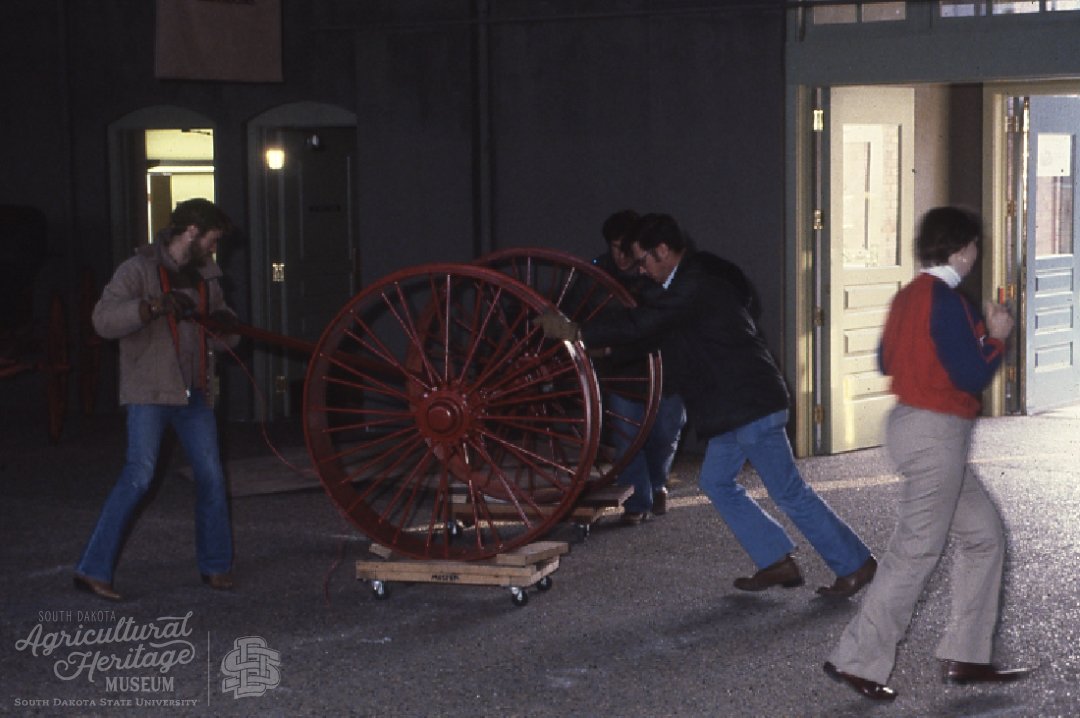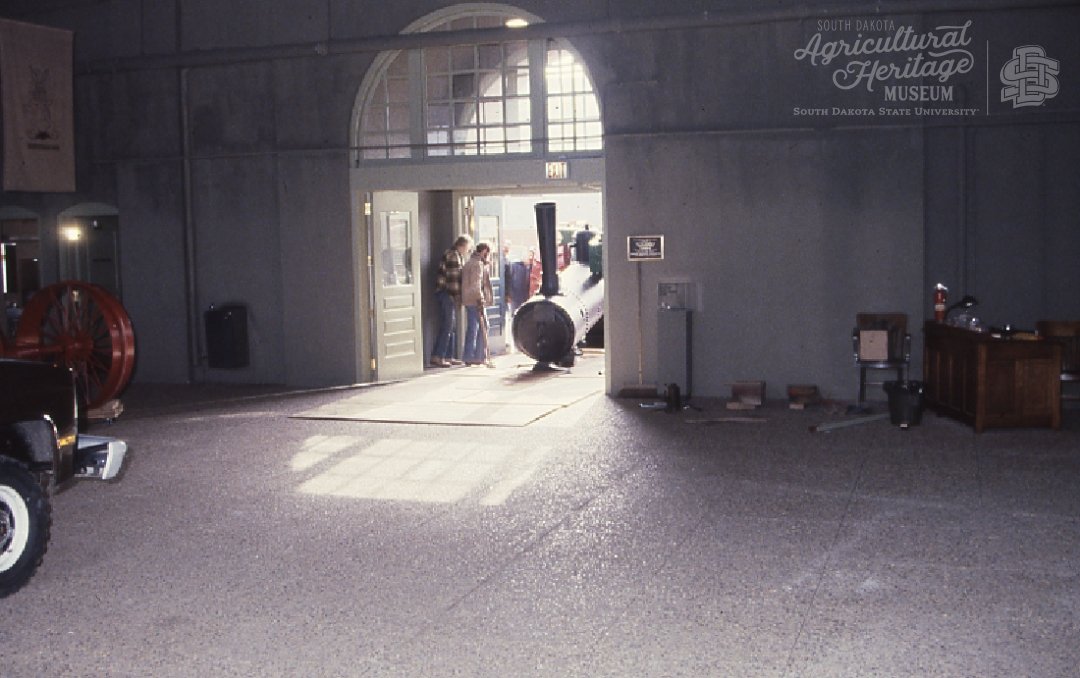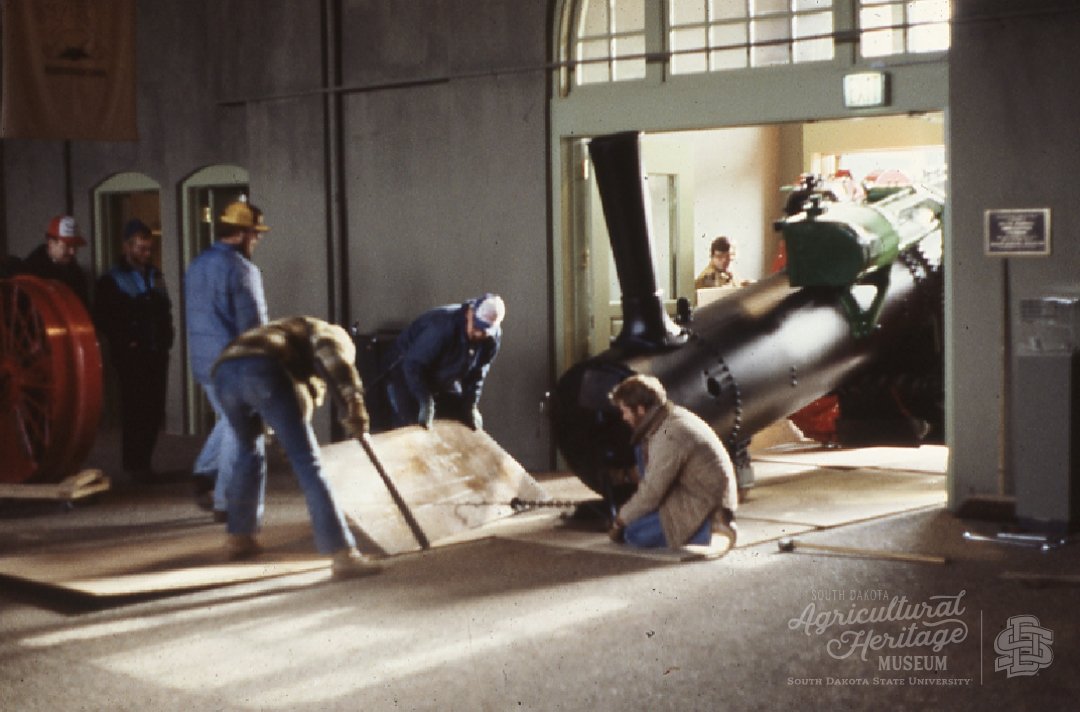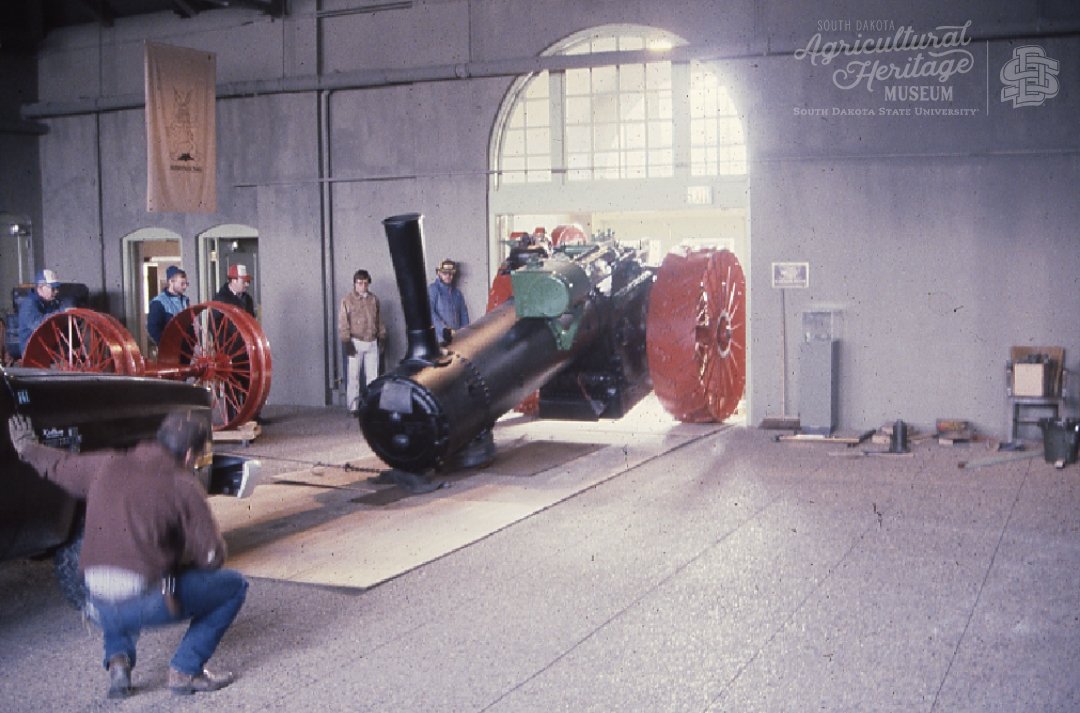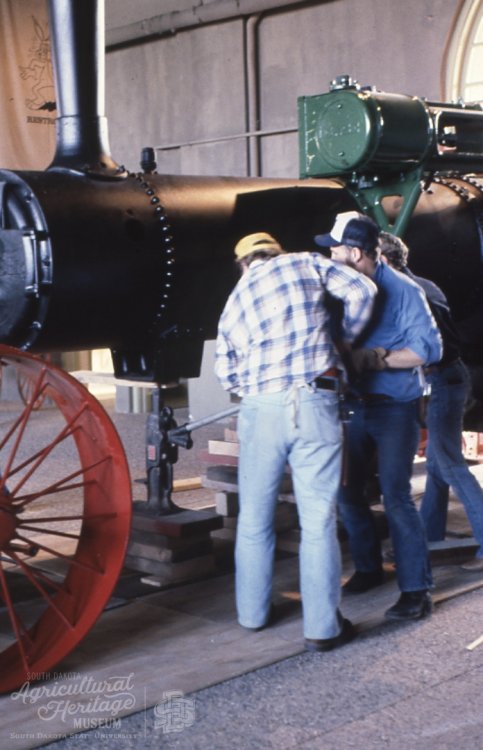
The agricultural giant back in the late 19th and early 20th centuries was the steam engine. As a typical general-purpose tractor, the Case 65 horsepower steamer was adaptable for almost any heavy-duty farming operation. Steam engines were originally brought out to the Midwest to break up the sod and turn virgin prairie into fertile farming ground. It easily handled a six to eight bottom plow. Steam engines also powered many a threshing crew and were capable of operating the largest threshing machine of the time – the Case 40x62.
The steam engine was rated a 65 belt horsepower and 40 drawbar horsepower. It had a maximum speed of 2.4 miles per hour. Its weight without water is 20,600 pounds.
Case engines came in different sizes, including 30 hp, 40 hp, 50 hp, 60 hp, 65 hp, 75 hp, 80 hp, 110 hp and 150 hp. Horsepower is defined as a unit of measurement that signifies the rate at which work is taking place. One horsepower is equivalent to the power needed to lift 33,000 pounds one foot in one minute.
The Agricultural Heritage Museum's 65 hp Case was manufactured in 1915, serial number 33043. It spent its working life north of Watertown. It features optional equipment purchased with the original engine including contractor's fuel bunkers and a fully-jacketed (northern) boiler.
The museum staff restored the engine between October 1982 and June 1983. The restoration has been ranked by the J. I. Case Company as one of the three finest restorations in the country.
Photos of moving the 1915 Case Steam Traction Engine into the museum in 1982.


